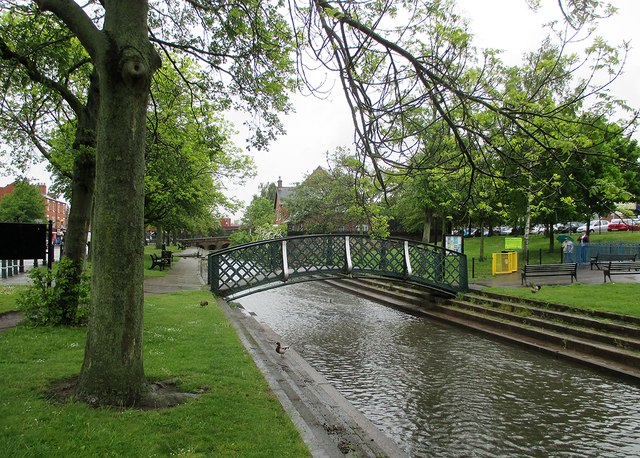The earliest documents that show there being settlements in Bulwell go back to around 800 AD. The formation of these settlements were most likely happening at around the same time as the first local bridge was built across the River Leen. The River Leen is 15 miles in length and flows from Annesley to The Meadows.
During the early days in Bulwell, the river was much narrower, shallower and slower-moving in Bulwell than in other locations along its length, and the threat of highwaymen was a real danger on existing cross-country routes.
A highwayman was a thief on horseback, who stole from travellers. Because of this threat, a toll bridge was constructed at Bulwell, to allow bona fide travellers a quicker and safer passage from north to south, while avoiding others.
Next to the river in the centre of Bulwell is a piece of land known as Bulwell Bogs or The Bogs – formerly an ancient open space, for centuries it has been a place for people to relax and for children to play, fish and paddle.
Now a popular green space, it was refurbished in 2008 with an improved children’s play area.

Image credit: Mick Garratt
In addition to the Bogs, there is an area roughly a mile upstream, near to the present-day Moorbridge, which over the years has attracted children from miles around to play. This led to the nickname “Bulwell-on-Sea” being applied by other Nottingham residents.
The building of the outdoor Lido pool nearby further strengthened the connection, with families being known to come from across the city to spend a day there. Unfortunately, despite fierce opposition by local residents, the Lido was demolished in 2006, with the land being sold off to private housing developers.
Attempted closures of Bulwell Bogs
There have been two separate occasions there have been attempts to prevent the public from enjoying this space. The first was in 1872 when the Lord of the Manor wanted to enclose it for his private use, after a local boy was charged with trespass. The case was dismissed when the boy’s lawyer cited ancient rights of public usage.
The case had strong support from local people and at one point it is reported that a thousand people went in procession through Bulwell to take possession of the Bogs. The protesters were described as “…impeccably well behaved and peaceable to a man; indeed rather joyous of spirit!”
In official records, it is reported that the people of Bulwell walked a short distance and then enjoyed lunch by the river. After this, the crowd is said to have “…dispersed quietly and as directed with no further disturbance”, later winning the fight to designate the land for the “pleasure and leisure of the people of Bulwell”.
However the victory did not endure and the land was soon enclosed again. Not long after, Nottingham Corporation stepped in and bought the Bogs – allowing the space to remain open to the public.

Image credit: John Sutton
The second attempted closure was more recently, in 2002. Nottingham City Council wanted to demolish the bogs to make way for a large road-bridge and a transport interchange, where buses, trams, taxis and trains could be caught.
Fierce public opposition from local people resulted in a campaign being launched to prevent the work being carried out; the City Council eventually got rid of the plans. With help from local community groups and residents, the facilities at Bulwell Bogs were instead upgraded in 2003 to produce a bigger play-park, a safer paddling pool and a cleaner feel, and won a Green Flag Award in 2004 for the work done to regenerate the area.









